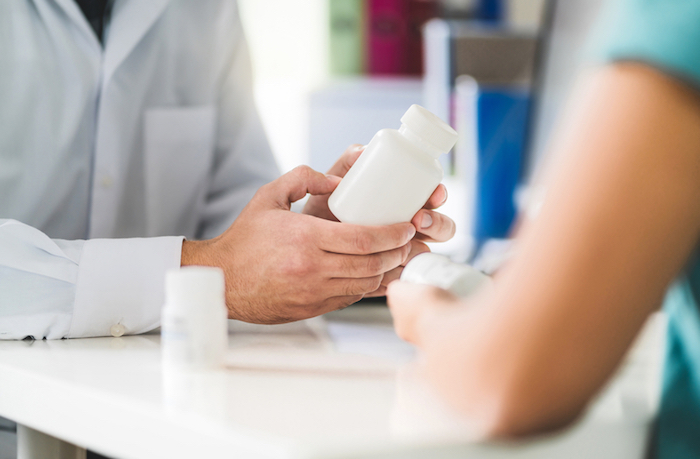- Calls to this hotline are currently being directed to Within Health or Eating Disorder Solutions
- Representatives are standing by 24/7 to help answer your questions
- All calls are confidential and HIPAA compliant
- There is no obligation or cost to call
- Eating Disorder Hope does not receive any commissions or fees dependent upon which provider you select
- Additional treatment providers are located on our directory or samhsa.gov
Polycystic Ovarian Syndrome (PCOS) & Eating Disorders in Women
Eating disorders are dangerous psychiatric disorders that wreak havoc on the mind, body, and life of the individual struggling. These disorders involve impairment in nourishment and eating behaviors that can cause severe physical damage if left untreated.
One consequence of eating disorder behaviors is that individuals are at higher risk for developing Polycystic Ovarian Syndrome (PCOS), a disorder that the Center for Disease Control and Prevention (CDC) reports impacts as many as 5 million women in the United States [1].
What is PCOS?
PCOS is caused when the ovaries or adrenal glands produce an abnormal amount of androgens, male sex hormones. The female reproductive system typically produces some androgens, however, it is a small amount.
The disorder is referred to as Polycystic Ovarian Syndrome due to the small cysts that form in the ovaries as a result of the overproduction of androgens.
It is still unclear what causes PCOS, however, researchers have found that it may be due to diagnosed individuals having a resistance to insulin. As such, they cannot utilize insulin properly and this build-up of insulin may result in increased androgen production [2].
Studies have also found that PCOS may be genetic, as individuals are more likely to experience it if their mother or sister has it [2].
Common PCOS Symptoms
PCOS greatly impacts the body, therefore, there are a lot of signs that can indicate you or a loved one might have it according to Johns Hopkins University:
- Irregular or ceased menstrual cycle.
- Excess body hair.
- Cysts on the ovaries.
- Pelvic pain.
- Weight gain (especially around the belly or abdomen).
- Abdominal bloating.
- Back pain.
- Pre-diabetes symptoms.
- High blood pressure and high cholesterol.
- Acne
- Small patches of excess skin in the neck ro armpits (skin tags).
- Dark or thick skin patches on the back of the neck, in the armpits, and under the breasts
- Severe mood fluctuations.
- Infertility [2].
The Link Between Eating Disorders and PCOS
Disordered eating and exercising behaviors undoubtedly impact the body’s hormone production, therefore, it is unsurprising that PCOS is associated with eating disorders.
Research has found that women diagnosed with PCOS engaged in disordered eating behaviors at 4 times the rate of those women without PCOS [3]. Another study determined that “women with PCOS reported significantly more binge episodes and more frequent episodes of compulsive exercise in the prior month than did the controls [3].”
This relationship can go both ways. Eating disorder behaviors, such as restriction or binge eating, impact the body’s hormone production, therefore leading to disorders that result from hormonal dysfunction or impairment.
Conversely, it seems that women with PCOS report “significantly higher rates of shape and weight concerns [3].” Women with PCOS also often experience higher weights and a predisposition to weight gain and are advised to diet by their medical professionals [3]. This emphasis on weight and health is a risk factor for eating disorder psychopathology and behaviors [3].
Related Reading
Eating Disorder and PCOS Treatment
When eating disorders co-occur with a PCOS diagnosis, it is important that both are considered in treatment.
Eating disorders are best treated with a multidisciplinary team that combines psychiatric, medical and dietary support.
PCOS treatment differs depending on an individual’s future reproductive plans. If an individual is planning to become pregnant, treatment might involve a change in diet and/or activity and medications that will cause ovulation [2]. Those not intending to become pregnant might be advised to take birth control pills, diabetes medication, or medications for other symptoms such as hair growth or acne [2]. They will likely be advised to alter diet and/or activity [2].
There are also anti-androgen medications that will lower androgen levels in those with PCOS.
For an individual with both an eating disorder diagnosis and PCOS, it should be discussed how these disorders interact for that individual. An individual’s body beliefs might be related to their PCOS symptoms and/or their PCOS symptoms might have led to depressive or anxiety symptoms that an individual uses eating disorder behaviors to cope with.
Knowing the relationship doesn’t change that both disorders must be treated simultaneously, however, it provides information as to exactly how these disorders interact so that the treatment team can best address both.
PCOS and eating disorders are treatable and an individual struggling with both can have hope that they can still have happy, fulfilling lives despite their disorders.
Author: Margot Rittenhouse, MS, LPC, NCC
Page Last Reviewed and Updated By: Jacquelyn Ekern, MS LPC 2.21.22



